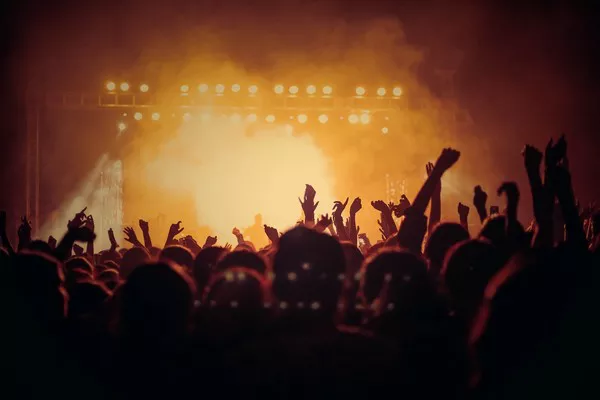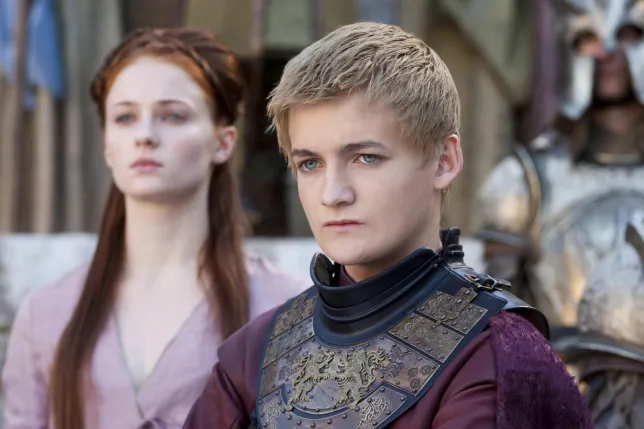Rap music, a genre rooted in the expression of raw emotions and societal narratives, has captivated audiences for decades. Its lyrical depth and rhythmic beats have made it a prominent force in the music industry. But what happens when you listen to rap music? How does rap music affect your mood? This question has intrigued researchers and listeners alike. In this article, we delve into the fascinating world of rap music and its impact on emotions, exploring how it can elicit various feelings, influence mental states, and even empower individuals.
The Emotional Resonance of Rap Music
Rap music has a unique ability to tap into the human psyche and evoke emotions in a way that few other genres can. The combination of powerful lyrics, rhythmic beats, and often autobiographical narratives connects with listeners on a profound level. Whether it’s the relatable stories of struggle, triumph, or personal experiences, rap music can elicit a wide range of emotions.
The Influence of Lyrics on Emotions
One of the most distinctive aspects of rap music is its lyrics. Unlike other genres, rap often features intricate wordplay, storytelling, and social commentary. These lyrics can be thought-provoking, controversial, or deeply personal. As a result, the emotions of the listener can be significantly influenced by the content of the lyrics. For example, a rap song that tells a story of overcoming adversity may inspire feelings of hope, determination, and resilience in the listener.
On the other hand, lyrics that address social injustice, racism, or political issues may evoke anger, frustration, or a desire for change. Take, for instance, the works of artists like Tupac Shakur and Kendrick Lamar, whose socially conscious lyrics have the power to stir deep emotions and encourage critical thinking.
The Role of Beat and Rhythm in Mood Regulation
In addition to lyrical content, the beat and rhythm of rap music play a crucial role in affecting one’s mood. Fast-paced, energetic beats can elevate the listener’s mood, boost energy levels, and create a sense of excitement. Conversely, slower tempos and more laid-back rhythms can induce a sense of relaxation, introspection, and even sadness, depending on the context of the lyrics.
Rap music’s versatility is exemplified by the broad range of emotions it can evoke, making it a go-to choice for individuals seeking music that resonates with their current emotional state. For instance, listening to rap with an upbeat tempo may help alleviate stress and lift one’s spirits, while slow, melodic rap can provide solace and comfort during times of sadness.
Personal Relevance and Empowerment
Another way rap music affects one’s mood is through personal relevance. Many listeners turn to rap music to find validation and a sense of belonging, especially when artists share experiences that mirror their own. Songs that speak to personal struggles, triumphs, or the challenges of everyday life can make individuals feel understood and less alone in their emotions.
Furthermore, rap music can empower listeners by instilling a sense of confidence and self-worth. When artists rap about self-empowerment, overcoming obstacles, and embracing individuality, it can inspire a transformative shift in the listener’s mindset. This empowerment can lead to improved self-esteem, motivation, and a positive outlook on life.
Catharsis and Emotional Release
Rap music can serve as a powerful tool for emotional catharsis and release. Whether it’s a rapper sharing their own emotional turmoil or a listener finding solace in the music, rap can provide an outlet for expressing pent-up feelings. For many, listening to rap is a way to process and release negative emotions, providing a sense of relief and emotional clarity.
In fact, studies have shown that listening to emotionally charged music, including rap, can help individuals cope with difficult experiences and reduce feelings of sadness and anger. Rap music often serves as a means for listeners to vent their frustrations and confront their inner demons, which can be a therapeutic and mood-enhancing process.
The Influence of Rap Subgenres on Mood
Rap music is a genre with many subgenres, each with its own distinct characteristics and emotional impact. For instance, “gangsta rap” is known for its gritty and confrontational lyrics, often portraying a harsh street life. Listening to gangsta rap may elicit feelings of aggression, defiance, or a sense of rebellion in some individuals. Conversely, “conscious rap” focuses on socially and politically charged themes, inspiring reflection, activism, and a heightened social awareness.
Other subgenres like “trap” and “mumble rap” offer unique soundscapes and lyrical content, which can evoke a range of emotions from hyped-up excitement to pure relaxation. The emotional response to rap music is highly individual, and the specific subgenre can greatly impact how it affects a person’s mood.
Cultural and Generational Factors
The emotional impact of rap music is also influenced by cultural and generational factors. The personal experiences and cultural background of the listener play a significant role in how rap music affects their mood. For instance, individuals from marginalized communities may relate more closely to rap songs that address issues of systemic inequality and injustice. On the other hand, the generational gap can influence the listener’s preference for specific eras of rap music, as the genre has evolved and diversified over time.
The emotional resonance of rap music can bridge generational gaps as well. Parents and children may bond over shared musical interests, using rap music as a medium for intergenerational communication and understanding. This dynamic illustrates the enduring impact of rap music on emotions and connections between people of different backgrounds.
Rap Music and Emotional Regulation
While rap music can certainly evoke intense emotions, it also has the potential to aid in emotional regulation. For individuals who struggle with managing their emotions, listening to rap music can serve as a coping mechanism. The act of engaging with the music, whether by dancing, singing along, or simply nodding to the beat, can release endorphins and help reduce stress and anxiety.
Moreover, rap music can provide listeners with a sense of catharsis, allowing them to confront and process their emotions. This self-awareness can lead to healthier emotional regulation, as individuals become more in touch with their feelings and are better equipped to address them in a constructive manner.
The Role of Rap Music in Self-Expression
Rap music also offers a platform for self-expression and creativity. Many individuals turn to rap as a means of articulating their own thoughts, experiences, and emotions. Writing and performing rap lyrics can be a therapeutic outlet, allowing individuals to express their innermost feelings and thoughts in a creative and constructive manner.
Engaging in rap as a form of self-expression can be highly empowering. It enables individuals to take control of their emotions and channel them into a productive and artistic outlet. The act of creating and sharing rap music can be a source of pride and fulfillment, which, in turn, positively influences one’s mood.
The Connection Between Rap and Social Identity
Rap music often intersects with social identity, reflecting and influencing the experiences and emotions of various social groups. For example, rap can be a potent tool for promoting social justice and advocating for marginalized communities. The emotional impact of rap music is particularly evident when it speaks to the experiences of specific social groups, such as the African American community or the LGBTQ+ community.
For members of these communities, rap can serve as a source of empowerment and validation. It can foster a sense of unity and solidarity, which positively impacts the mood of individuals who feel heard and supported by the music. Conversely, it can also elicit emotions like anger and frustration when addressing the challenges and injustices faced by these communities.
The Dark Side: Negative Emotional Impact of Rap Music
While rap music can have a positive influence on emotions, it is important to acknowledge that it can also have negative emotional effects on some individuals. The themes of violence, drug use, and misogyny in some rap songs can be distressing for some listeners. Exposure to such content may induce feelings of fear, desensitization, or even contribute to a despondent emotional state.
Moreover, the glorification of materialism and criminal activity in some rap music can lead to feelings of inadequacy or unrealistic expectations for some listeners, potentially exacerbating issues related to self-esteem and self-worth.
The Importance of Individual Preferences
In the end, the impact of rap music on one’s mood is highly individual. People have diverse musical tastes and emotional sensitivities, so what may uplift one person’s spirits could bring another person down. The beauty of music, including rap, lies in its subjectivity – it has the power to evoke a vast array of emotions and to resonate with individuals in unique ways.
It is crucial for individuals to recognize their own emotional responses to rap music and choose the songs and artists that align with their current emotional needs. For some, rap is a source of catharsis and empowerment, while for others, it may be more of a trigger for negative emotions. Ultimately, understanding one’s own emotional responses to rap music is key to using it effectively as a tool for mood regulation and self-expression.
Conclusion: The Multifaceted Impact of Rap Music on Mood
Rap music is a genre that wields tremendous emotional power. It has the capacity to elicit a wide range of emotions, from inspiration and empowerment to sadness and anger. The lyrical content, beat, and rhythm of rap music, along with personal relevance, cultural factors, and social identity, all play a role in determining how rap music affects one’s mood. It serves as a platform for emotional expression, self-empowerment, and even social change.
However, it is important to recognize that the emotional impact of rap music is not uniform, and what resonates with one person may not resonate with another. Individuals should be aware of their own emotional responses to rap music and choose the songs and artists that best align with their current emotional state and needs. Rap music is a dynamic and multifaceted genre that continues to shape and reflect the emotions of its listeners, making it a significant cultural force in the world of music.
As we continue to explore the intricate relationship between rap music and emotions, it becomes evident that the power of this genre lies not only in its capacity to influence our moods but also in its ability to connect with our deepest emotional experiences and provide a soundtrack to our lives.

























